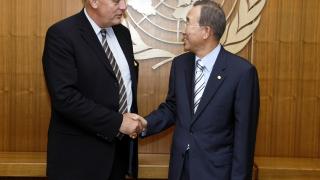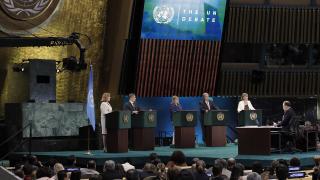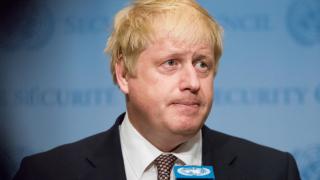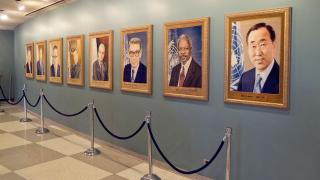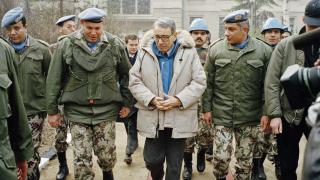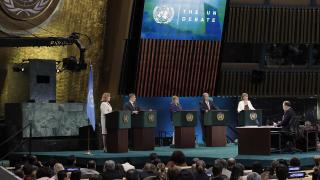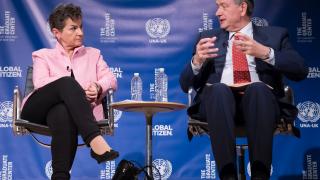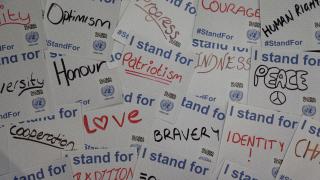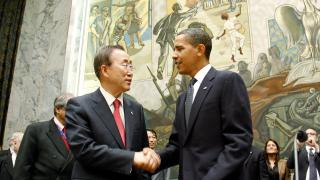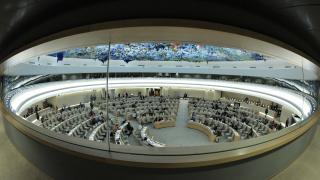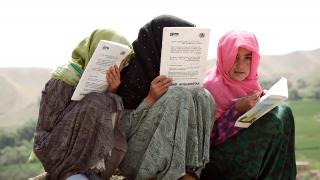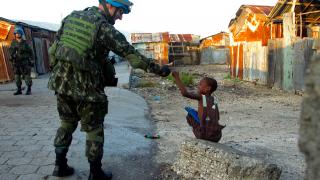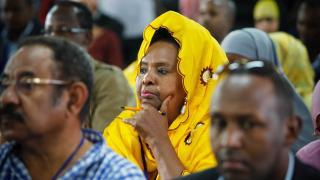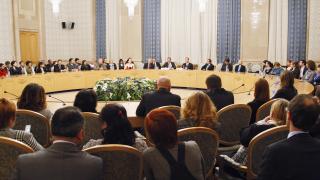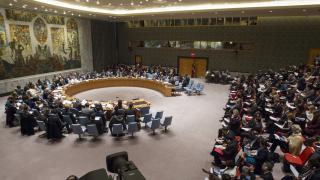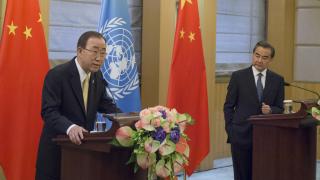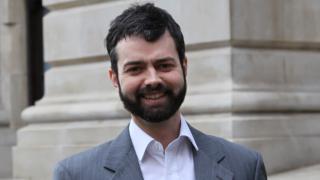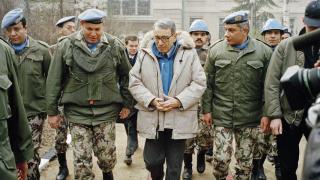
Boutros Boutros-Ghali’s term as UN Secretary-General (1992–96) is an object lesson for those who want a more assertive post-holder, one who can reject or at least finesse pressure from the biggest players at the UN.
The Egyptian academic, politician, former foreign minister and veteran of the Camp David Agreement – who died earlier this year – was as well‑qualified for the job as anyone is likely to be. He spoke Arabic and French like a native and English very well. He was mildly left of centre politically, from an ethnic and linguistic group that had never held this post and from a continent that was teeming with political, economic and humanitarian problems that cried out for UN attention. He tried to be an independent world civil servant, as the UN Charter prescribes, but found, like all his predecessors, that he could not be frank or realistic when tackling pressing items on the world agenda.
Small countries don’t like to be told that the UN can only help them if they exert themselves on their own behalf and are ready to compromise. The big powers, who smugly boast that they pay the bills, pressure the Secretary‑General at every turn, even to the degree of micro‑ managing which countries he may visit or which journalists he can talk to.
Boutros‑Ghali’s account of his time on the 38th floor is bravely entitled Unvanquished: A US–UN Saga but actually it was a disgrace, highlighting just how tight a grip the big powers have on the world body. He was an effective leader of the UN – President Clinton called him “outstanding” – but many Americans detested him for being so. For its own crass domestic reasons Washington overrode the expressed intent of all the other members of the Security Council to prevent him being re‑elected for a second term. The General Assembly was never even asked its opinion.
The early nineties was a very productive time for the UN. The Cold War had just come to an end; the Security Council had taken firm action to eject Iraq from Kuwait and might have followed similar principles to deal with the implosion of Somalia and Yugoslavia, and the war in Rwanda.
In each case, long‑standing antagonism and resentment in the face of years of domination and corruption burst out like an open wound. In each case, the local leaders thought they could eliminate their opponents by force, and in Bosnia and Rwanda, by genocide. In each case the Security Council recognised the danger but did not give the UN adequate means to respond, even though Boutros‑Ghali kept reminding them of that unpleasant fact. Not that he was entirely blameless for the Rwandan massacres. The Hutu government was one of Egypt’s favoured states for aid and as Foreign Minister before he went to the UN, Boutros‑Ghali had enabled the regime to acquire large quantities of weapons.
Confronted by the appalling evidence of slaughter in Rwanda in 1994, the Security Council was paralysed. It withdrew most of the UN force when it should have been doubled and its mandate strengthened to give priority to protection of civilians. It was influenced, no doubt, by what had happened in Somalia the previous year, when American troops were badly mauled by local militia in Mogadishu, losing 18 soldiers and two helicopters.
Although the operation was entirely directed by US generals, the American media – and prominent politicians – blamed the UN. Senator Bob Dole, running for the Republican nomination in 1996, mocked Boutros‑Ghali’s name, to popular approval. Fearing this would influence his own re‑election, President Clinton authorised his UN ambassador to veto Boutros‑Ghali s reappointment. The 14 other members of the Security Council supinely bowed to this pressure, even though the issue did not in the least affect the security of the US.
Of course, Boutros‑Ghali was not perfect. He could be abrasive, not just with ambassadors demanding subservience but with his staff too. More importantly, though, he fell foul of the UN’s perennial challenge: the wish list of the member states far exceeds the resources they provide. (While the US was carping about UN inadequacy in 1996, for example, it was also almost a billion dollars in arrears with its dues.)
Hearts and minds need to change in the major capitals before any Secretary‑ General, whatever their qualifications or method of selection, can realise his or her full potential.
Photo: Boutros-Ghali walks with Egyptian peacekeepers in Sarajevo, 31 December 1992 © UN Photo / A Morvan



